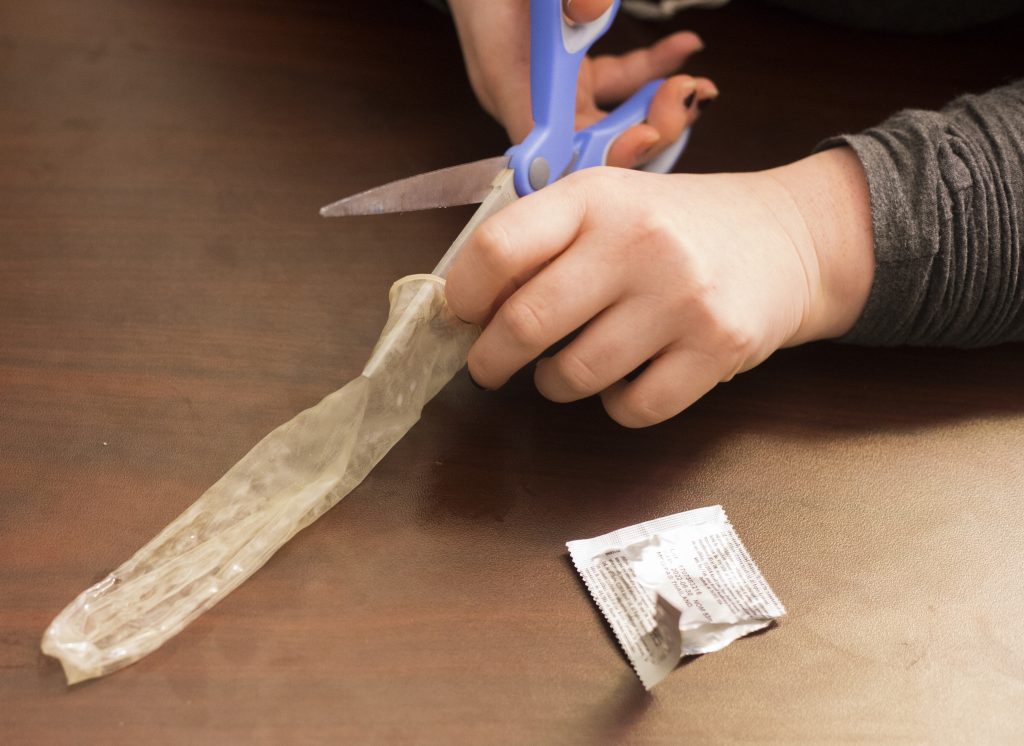
At Binghamton University, condoms are commonly available, but safe-sex materials for queer and lesbian women are harder to find.
In dormitory halls across campus, every Resident Assistant office is stocked with a bowl of contraceptives intended to contain a variety of options for students looking to protect themselves. However, they tend to carry only external condoms and lube, contraceptive options that are tailored to heterosexual couples and gay men, ignoring those with other sexual orientations, like queer women, who generally use dental dams to protect themselves during sex. In Pipe Dream’s sex survey, only seven respondents indicated they use dental dams during sex, although 14 respondents identified as lesbian.
In an article published on Verywell Health, a medical information website partnered with The Cleveland Clinic, Elizabeth Boskey, an adjunct lecturer at Boston University who researches sexually transmitted diseases, said a lack of discussion surrounding lesbian and queer sex and a lack of safe-sex resources for lesbian and queer women makes it difficult for lesbian and queer women to protect themselves.
“The risk of STD transmission between women is compounded by the fact that many lesbians and bisexual women consider sex between women to be a low-risk activity and so do not practice safer sex,” Boskey wrote. “Lesbian safer sex is not an oxymoron. There are ways to improve the safety of most, if not all, sexual activity that takes place between women.”
A Guttmacher Institute study of college-aged sexually active female students found that lesbians and queer women were less likely to contract a sexually transmitted infection than straight and bisexual women, but were also less likely to have gotten a routine gynecological exam. According to an anonymous sophomore majoring in psychology, the education system consistently fails queer women, which leads to less knowledge about safe sex and reproductive health.
“When you’re young, all they teach you in health class is condoms and abstinence,” the student said. “They never talk about any kind of sex other than the [heterosexual] kind. It’s like, ‘Oh, so I’m abnormal,’ because they don’t talk about any other kind.”
For queer, female students who want to have safe sex, there are options beyond dental dams. Students can cut external condoms or convert latex gloves to create makeshift dams. They can also access a variety of safe sex resources at the Q Center, which is located in the basement of Glenn G. Bartle Library, and at Rainbow Pride Union’s office, located in the University Union. For STD and STI testing, students can visit the Decker Student Health Services Center or go to off-campus resources, such as Family Planning of South Central New York on Hawley Street or the Broome County Health Department on Front Street.


